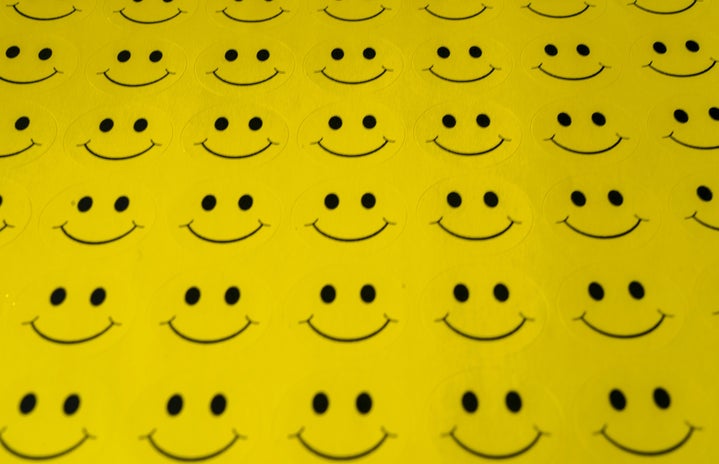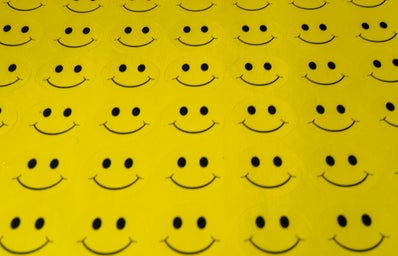Winter has begun, and for some, it’s definitely the most wonderful time of the year, but without a doubt, this can be a difficult time for mental health with daylight savings, exam season, and colder weather fast approaching. This being said, D.O.S.E is an acronym for the brain’s neurotransmitters- also known as the “happy chemicals/hormones,” which stands for Dopamine, Oxytocin, Serotonin, and Endorphins. They can be used as a toolkit for harnessing these mood-boosting chemicals and overcoming the winter blues.
As a social psychology student interested in well-being, I’ve compiled a list of activities, hobbies, and habits that I’ve incorporated into my daily weekly routine to boost my daily “D.O.S.E” to live a fulfilling lifestyle. Please remember that these are all tailored to my unique interests and hobbies; what works for one person may not work for another!
1. ‘D’ is for Dopamine
Dopamine, also known as the reward chemical, plays a vital role in memory, movement, motivation, mood, attention and more. Experts recommend meditation, creativity, exercise, and goal-setting to target this reward center.
My “D” Routines:
- Connecting with Nature: I prefer a leisurely stroll or hike when gym visits feel challenging. Armed with a cup of coffee, a good book, or accompanied by a friend, it becomes a delightful alternative to getting my steps in.
- Registering for Self-Excursions/Classes: I’m always looking for a new art, cooking, yoga, or dance class in my area—considering it my personal date. Not only does it build anticipation for my week, but it’s also a fantastic avenue to explore new hobbies and relish my own company.
- Colouring: I find colouring to be an excellent stress reliever! Bobbie Goods colouring books and Mandala colouring books top my list of personal favourites.
- Self Assessments: Call me crazy, but I love a good personality test… yes.. the ones we dreaded in our high school careers class. I like to do these every 6 months a year to see areas I’ve improved and can excel in, comparing my previous ones to new ones.
- Vision Boards: When I’m feeling inspired, I create vision boards on Canva using photos from Pinterest to set goals for my future and what I plan for it to look like.
2. ‘O’ is for Oxytocin
Oxytocin, also known as the love hormone, plays a vital role in bonding, feelings of trust, romantic attachment, recognition and more. To target this hormone, experts recommend physical touch and socialization.
My “O” Routines:
- Friend Dates: They used to be called play dates; now, I call them friend dates. Personally, I love being around people, so I love to go on “dates” with friends to spend quality one-on-one time with the people I love
- Babysitting: I love kids, and until I can have one of my own, babysitting does the job of nurturing my need to connect with young children.
- Volunteering: Although I haven’t done this one as much as I’d like to, anytime I’ve signed up to volunteer in my community, I’ve felt a great sense of connection and happiness with others.
- Family Time: When I need a break from going out every weekend, going home to visit my parents and little sister can be an excellent time to unwind and reconnect with them.
- Collecting Stuffed Animals: Not everyone has a cuddle buddy, but that’s what your favourite stuffies, fluffy pillows, and blankies are for. Rufus, Diesel, and Porky have never failed to cuddle me (plus they never get sweaty).
3. ‘S’ is for Serotonin
Serotonin, also known as the mood stabilizer, plays a vital role in learning, memory, happiness, sleep, sexual behaviour, hunger and more. To target this hormone, experts recommend physical activity, healthy eating and sleeping habits, and exposure to sunlight.
My “S” Routines:
- Working Out: I wouldn’t call myself a “gym girl,” but I’m learning to find comfort in going to the gym or attending a workout class at least twice a week. I find that on days I do this, my energy levels really increase!
- Monitoring my food Triggers: After visiting a naturopath, I discovered certain foods causing me unpleasant symptoms such as fatigue, rashes, bloating, etc. After limiting certain foods with the guidance of a professional, I found my mood to improve as a result!
- Investing in Quality Sleep: Limiting my screen time before bed and in the morning, practicing gratitude at night, drinking tea before bed, listening to white noise, and investing in good quality pillows and sheets have all improved my sleep quality
- Using a Light Therapy Lamp: I tried a Light Therapy Lamp for two weeks, which I rented for free from Mills Library on McMasters Campus! At first, I was skeptical, but living in a basement room in conjunction with daylight savings time of year, I found this one helpful!
4. ‘E’ is for Endorphins
Endorphins, also known as painkiller, plays a vital role in reducing stress, depression, and anxiety, improving memory and mood, and boosting self-esteem. To target this hormone, experts recommend physical activity, music, dancing, laughing, and sex.
My “E” Routines:
- Yoga: I like to do gentle yoga and stretching before bedtime to unwind and calm my anxiety, which is typically heightened at night. I’ve found this to be an excellent tool to connect with my body and slow down my breathing.
- Music: My new hobby is creating a new monthly playlist that fits my mood for that specific period. I’ve been trying to listen to upbeat music when I wake up to set a positive tone for the day, and I’ve noticed a significant change!
- Lighthearted Shows: My favourites right now are Sex and the City and Parks and Rec when I need a good laugh and something not too heavy.
- Practicing safe sex: This isn’t easy or a comfortable topic for everyone, but growing into my body and understanding everyone has these needs without holding discomfort or shame against myself has been an excellent start for me.
Reader’s Note: While these are personal suggestions and routines that have proven helpful for me, it’s crucial to understand that they are not intended as a substitute for prescribed medication or a cure for specific mental health disorders. If you are grappling with intense sadness or depression, it is strongly advised to seek professional help.
Resources
Crisis/Mental Health Support Hotlines:
- For First Nations, Inuit, and Métis Peoples: Hope for Wellness Help Line: 1-855-242-3310
- For LGBTQ+ Community: LGBT Youth Line: 1-800-268-9688
- For Hamilton Residents: COAST: 1-844-972-8338 OR Barret Centre: 1-800-668-6868
- For Other Resources: Good2Talk 1-866-925-5454
McMaster Campus Resources for Non-Emergencies:
- Student Wellness Centre: 905-525-9140 ext. 27700


